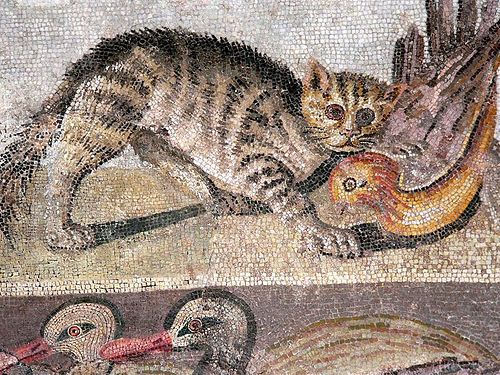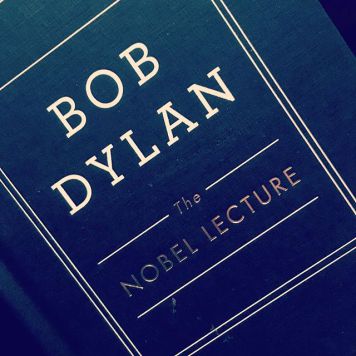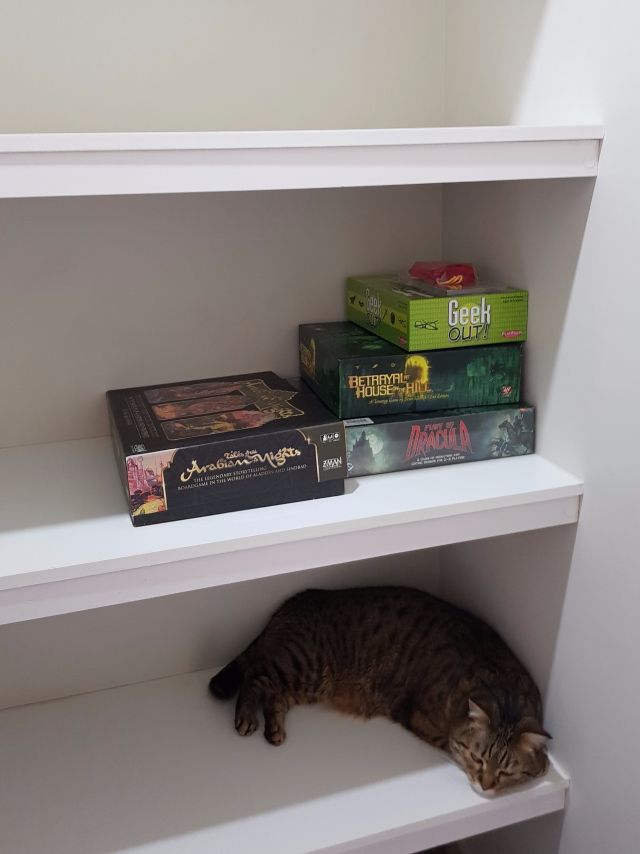This is likely the penultimate, or at least the antepenultimate, post about animal sounds. I am not losing steam, exactly; but I am losing material. This post is a little bit of a failure. But, along the way, we will get to sounds for weasels, snakes, and mice. This is a win, even if the elusive cat’s meow remains beyond me. If anyone finds evidence, I will gladly post it.

Colorful Cat Mosaic from a dining room (triclinium) in the House of the Faun in Pompeii
Photographed at the Palazzo Massimo venue of the National Museum of Rome, Rome, Italy.
A proverb (in Arsenius and elsewhere; this version is from the Etymologicum Magnum)
“[Comparing] a cat to Athena. This is used for those who poorly compare serious things with minor because of some minor similarity, as the proverb applies—as if someone compares Athena with a cat because they both have gray eyes.”
᾿Αθηνᾷ τὸν αἴλουρον: ἐπὶ τῶν κακῶς συγκρινόντων τὰ κρείττονα τοῖς ἥττοσι διὰ μικρὰν ὁμοιότητα ἡ παροιμία εἴρηται· ὡς εἴ τις διὰ γλαυκότητα τὸν αἴλουρον τῇ ᾿Αθηνᾷ συμβάλλοι.
As I have posted about before, there is confusion in early Greek between weasels and cats because both are used in an early period to rid the home of rodents and cats are not as well-represented until the Hellenistic period or later. This complicates finding evidence for ancient Greek representations of cat sounds (I cannot find any) and weasel sounds (very little evidence). But there are some interesting things to say about cats.
The first thing to note is that there are different names and spellings for the felix domesticus. The early Αἴλουρος appears in Herodotus (with an extra syllable). By the early Byzantine period we find an interesting etymology based on the cat’s twirling tail.
Etym. Magnum.
“Ailouros: An animal. The name comes from twisting, turning and moving the tail. Also an ailourios, some call a root this”
Αἴλουρος: Τὸ ζῷον, παρὰ τὸ αἰόλειν καὶ ἀνάγειν τὴν οὐρὰν καὶ κινεῖν. Καὶ αἰλούριος, ῥίζα τὶς οὕτω καλουμένη.
N. B. Aelian has Αἰλούρων ὁ [7.27]
Cf. Etym. Gen.
“Aielouros> This is not pleonasm but instead antithesis. It comes from “curling” [aiolein] the tail [ourên]
Αἰέλουρος (Soph. Ichn. 296)· τοῦτο οὐκ ἔστι πλεονασμὸς ἀλλὰ ἀντίθεσις· παρὰ γὰρ τὸ αἰολεῖν τὴν οὐρὰν ἐτυμολογεῖται
Moeris
“Attic speakers say aielouros; Greeks say ailouros”
αἰέλουρος ᾿Αττικοί, αἴλουρος ῞Ελληνες.
N.B. This form does appear in Herodotus, Sophocles, and more!
Additional evidence gives us little information about the ailouros. It is clear that Herodotus’ cat is the cat as we might recognize it. In other early Greek authors, the evidence gets a bit muddy. This scholion to Aristophanes provides some interesting information. It conflates names and animals, I think, but presents some catty behavior.
Schol. ad Aristophanes Pl. 693
“Stinkier than a weasel”: There are two kinds of weasels, one is wild, which is twofold. It is called an ailouros and another small animal which has red skin. And there is also a *hêmeron. This is the creature which homer calls a ktis but is commonly called katis. This one has really the worst smelling excrement. And when this animal defecates and excretes it throws dirt over it and covers what it excreted. You should also know that that ktis to which, according to the language in homer, the lexicographers of that divine man do not understand, that it is syncope for katis. This animal, they say, is a birdeater, and a complete troublemaker, like an ailouros.”
δριμύτερον γαλῆς· δύο
γένη τελοῦσι γαλῶν, τό τε ἄγριον—
ὅπερ διττόν ἐστιν· ὅ τε καλούμενος
αἴλουρος καὶ σμικρὸν ζῷον ἕτερον
πυρρὰν ἔχον τὴν χρόαν—καὶ τὸ
ἥμερον. ἥμερον δέ ἐστιν ἡ παρ’
῾Ομήρῳ μὲν κτὶς καλουμένη, κοινῶς
δὲ κατίς. ἔστι δὲ τούτου ἡ ἄφοδος
δυσοσμότατος, ὅθε καὶ ἀποπατοῦν
καὶ ἐκκρῖνον τὸ ζῷον κόνιν ἐπιβάλλει
καὶ περικαλύπτει τὰ ἐκκρινόμενα.
καὶ τοῦτο δέ σοι ἰστέον ὡς καὶ τὸ
“κτίς” τὴν παρ’ ῾Ομήρῳ λέξιν
αὐτῆς οἱ τοῦ θείου ἐκείνου ἀνδρὸς
λεξιγράφοι μὴ συνιέντες, ὅτι συγκο-
πὴ τοῦ “κατίς” ἐστι, ζῷον τοῦτό
φασιν εἶναι ὀρνιθοφάγον καὶ πανοῦρ-
γον κακῶς ἤτοι αἴλουρον.
Cf. Aelian 6.27
“People claim that cats hate and dread everything that smells bad. For this reason, they dig a hole and hide their fecal matter so that they might make it invisible when they cover it with earth.”
φασὶ δὲ τοὺς αἰλούρους πάντα ὅσα δυσώδη ἐστὶ μισεῖν τε καὶ βδελύττεσθαι. ταύτῃ τοι καὶ τὸ σφέτερον περίττευμα ἀφιέναι πρότερον βόθρον ὀρύξαντας, ἵνα ἀφανίσωσιν αὐτὸ τῆς γῆς ἐπιβαλόντες.
*I cannot find more information about this type of weasel. We need a weasel-specialist.
What I suspect might be going on here–apart from the delightful description of whatever animal this is as a bird-eater and a troublemaker–is that this scholiast is building a phonetic bridge between the Homeric weasel (ktis) and the latter Greek word for domesticated cat (kattês). The overlapping conceptual space of cat and weasel in the galea (γαλέη) facilitates this, I think. You will note from the passages below some behavior that seems feline and some that does not.
Schol. at Arist. Clouds 169a
“Now he says that the spotted lizard is the small and red wild weasel, not the ailouros or the hêmeron weasel, this is the ktis or also the katis about which Homer also says “he placed a hat well made from a weasel on his head.” This wild weasel scrambles up and down and runs around the walls”
νῦν δὲ οὗτος ἀσκαλαβώτην φησὶ τὴν μικρὰν καὶ πυρρὰν ἀγρίαν γαλῆν, οὐ τὸν αἴλουρον οὐδὲ τὴν ἥμερον γαλῆν, ἥτις ἐστὶν ἡ κτὶς καὶ ἡ κατίς, περὶ ἧς καὶ῞Ομηρος λέγει· κρατὶ δ’ ἔπι κτιδέην κυνέην εὔτυκτον ἔθηκεν.ἀσκελῶς δὲ καὶ ἡ ἀγρία γαλῆ ἀναρριχᾶται καὶ περιτρέχει τοὺς τοίχους.
Apollonius Sophista [cf. Hesychius s.v. κτιδέα]
“The ktis is an animal similar to a small weasel (galê, differing from the weasel in size….
κτὶς γάρ ἐστι τὸ ζῷον ὅμοιον γαλῇ μικρῷ, μεγέθει διαφέρουσα τῆς γαλῆς…
Suda
“Kattês, kattou: a domesticated ailouros.”
Κάττης, κάττου: ὁ κατοικίδιος αἴλουρος.
“Home-born”: A kattês which was born in the home. “Does A homeborn cat, after eating my partridge, expects to live in my home? [=Greek Anthology 7.205, attributed to Agathias Scholasticus]
Οἰκογενής: ὁ κάττης, ὁ ἐν οἴκῳ γεννηθείς. οἰκογενὴς αἴλουρος ἐμὴν πέρδικα φαγοῦσα ζώειν ἡμετέροις ἔλπεται ἐν μεγάροις.
Here is a fragment that will horrify ailouranthropes [“cat-people”]:
Anaxandrides (fr. 40.12-13; Athenaeus 7)
“If you see a cat in pain, you mourn.
But I am happy to kill it and flay it.”
τὸν αἰέλουρον κακὸν ἔχοντ᾿ ἐὰν ἴδῃς
κλάεις, ἐγὼ δ᾿ ἥδιστ᾿ ἀποκτείνας δέρω.
γαλῆ γαλέα mostly describes a weasel but sometimes indicates a cat, since both were used domestically to catch mice.
Aelian 6.41.30-32
“this is also a particular quality of mice. Whenever they hear the trilling of a weasel or the hissing of a serpent they transfer their young from one mouse hole to another”
…ἰδιότης δὲ ἄρα μυῶν καὶ ἐκείνη. ἐπειδὰν ἀκούσωσι γαλῆς τριζούσης ἢ συρίττοντος ἔχεως, ἐκ τῆς μυωπίας τῆς μιᾶς τὰ ἑαυτῶν βρέφη ἄλλο ἄλλῃ μετοικίζουσιν
This passage is the only place I could find evidence of the sound that weasels make. This verb is used to indicate the trilling or squeaking of multiple types of animals, usually small ones like mice and weasels.

This is not the only place where this sibilant verb is used to describe a snake’s hiss. Again, in a scholion to Aristophanes, we get a description of multiple animals sounds that includes the sssssscary snake:
Schol ad. Aristoph. Pl. 689
“Each of the animals has its own particular voice—so a goat maaaas, a cow moooos, a raven crows and other animals are similar. Thus a snake also hisses [surizei].
«ἐξάραντες ἐπικροτήσατε.») …. ἕκαστον γὰρ τῶν ζῴων ἰδίαν φωνὴν ἔχει, ὡς αἲξ τὸ μηκάζειν, βοῦς τὸ μυκᾶσθαι, κορώνη τὸ κρώζειν, καὶ τἄλλα ὁμοίως· οὕτω καὶ ὁ ὄφις τὸ συρίζειν. —ὑφῄρει δὲ ἀντὶ τοῦ ἐκτείνει.
The verb used here, however, seems to be denominative from σῦριγξ, a noun which has a bit of a messy prehistory.

The verb trizein is used for many different animals. A unique compound appears to evoke the panicked squeaking of a dying mouse. In Latin, mice pipitare.
Batrakhomuomakhia 88
“He was squeezing his hands together and he was squeaking while he died”
καὶ χεῖρας ἔσφιγγε καὶ ὀλλύμενος κατέτριζε.
An Anecdote from Aelian
“Aristeides the Lokrian, after he was bitten by a Tartessian weasel and was dying, said “It would have been much better to die after being bitten by a lion or leopard than, if there would be some excuse for death other than this creature.” I think he felt the shamefulness of the bite to be more burdensome than death itself.
῞Οτι ᾿Αριστείδης ὁ Λοκρὸς ὑπὸ Ταρτησσίας γαλῆς δηχθεὶς καὶ ἀποθνήσκων εἶπεν ‘ὅτι πολὺ ἂν ἥδιον ἦν αὐτῷ δηχθέντι ὑπὸ λέοντος ἢ παρδάλεως ἀποθανεῖν, εἴπερ οὖν ἔδει τινὸς τῷ θανάτῳ προφάσεως ἢ ὑπὸ θηρίου τοιούτου,’ τὴν ἀδοξίαν ἐμοὶ δοκεῖν ἐκεῖνος τοῦ δήγματος πολλῷ βαρύτερον φέρων ἢ τὸν θάνατον αὐτόν.
Varia
Antigonus Paradoxographer, 68
“A weasel’s genitals are bony”
Τῆς δὲ γαλῆς ὀστοῦν εἶναι τὸ αἰδοῖον.
Schol P ad Arist. Plut 693
“The feces of a weasel are completely bad-smelling”
πάνυ γὰρ δύσοσμός ἐστιν ἡ τῆς γαλῆς πορδή
Physiologos 21
“Don’t eat a weasel or anything like it”
Μὴ φάγῃς οὖν γαλῆν, μηδὲ τὸ ὅμοιον αὐτῆς.
Share this:





